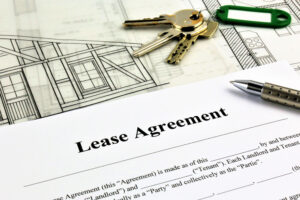
Market Perspectives Blog Post
Pets, Deposits, and Damage: What Every Landlord (and Renter) Should Know

Landlords often wrestle with two main decisions:
Whether to allow pets at all, and
How to structure deposits or fees if they do.
Here’s what’s typical in the industry:
Pet Deposits: One-time refundable amounts (usually $200–$500) meant to cover pet-related damage.
Pet Fees: Non-refundable fees (often $100–$300) simply for the privilege of having a pet.
Pet Rent: Monthly charges ($25–$50 per pet) added on top of regular rent to account for added wear and tear.
Some landlords do a combination — a deposit, plus pet rent. Others waive deposits in exchange for higher monthly fees. In Texas, there’s no legal cap on pet deposits unless combined with the security deposit, but it’s important to be clear and consistent in the lease.
Risk vs. Reality: Do Pets Actually Cause More Damage?
The perception is that pets equal problems. But the data? More nuanced.
A 2021 survey by FIREPAW (The Foundation for Interdisciplinary Research and Education Promoting Animal Welfare) found that damage from pets averaged $430, but damage from tenants without pets averaged $323 — not a huge difference. The same study reported that less than 10% of pet-owning tenants caused significant damage, and most of those issues were manageable (scratched doors, minor carpet stains). Importantly, pet-friendly rentals experienced lower vacancy rates and longer tenancies, helping offset the risk.
In short: yes, pets can cause damage — but the majority of pet owners are responsible. And long-term leases often result in a net benefit to landlords.

What Types of Pets Are Allowed (and Where)?
The vast majority of renters now own pets. National stats show:
70% of U.S. households have at least one pet (American Pet Products Association, 2024).
Only about 55% of rental listings are pet-friendly (Zillow Rental Market Report, 2024).
Of those that are pet-friendly:
95% allow dogs (with restrictions on breed or size).
98% allow cats.
Only 12% allow “other” pets like birds, reptiles, or rabbits.
Trends in the Austin Market
In Austin, we’re seeing growing flexibility among private landlords, especially in East Austin and neighborhoods with newer builds. Institutional landlords (like big apartment complexes) tend to have stricter breed and size limits, while individual property owners may allow pets on a case-by-case basis.
Pro tip from our team: Tenants who provide pet references, renter’s insurance with pet liability coverage, and agree to professional cleanings at move-out are more likely to win approval — even when the lease originally says “no pets.”
Whether you’re a landlord debating a new pet policy or a renter wondering how to present your goldendoodle in the best light, it comes down to risk management and clear expectations. Pet-friendly doesn’t mean pet-unrestricted — and smart leasing can protect both parties.
At Adam Timothy Group, we help landlords build smart, profitable, and responsible rental strategies that align with the realities of today’s market. And for tenants? We help you stand out — even if you’re traveling with a four-legged roommate.
Other Market Perspectives Posts

Keep Austin Full of People Who Love It
We don’t just buy and sell homes. We build community by helping clients find their place in the world.
Timothy Powles and Adam Stanley work together on the Adam Timothy Group at Compass RA and manage AT Real Estate Group LLC, a rental and vacation property investment business. We are about building community. We believe a real estate transaction is an important and extremely significant event but relationships last a lifetime. Our clients, partners, and friends trust us to get to know their story and what is most important to them. And we work tirelessly to retain that trust.





